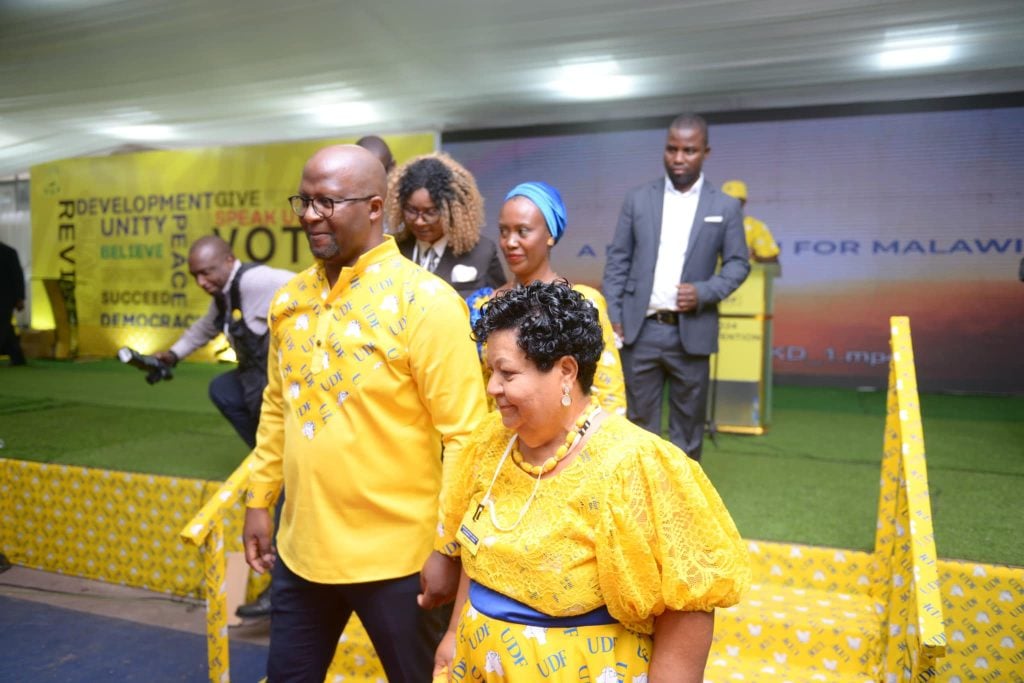Atupele Sounds the Alarm: “Malawi’s democracy is crumbling, strangled by corruption, intimidation, and autocratic overreach.”
Atupele Muluzi has thrown down the gauntlet—and his message is nothing short of explosive. In a blistering speech at the Platform for African Democrats conference, the United Democratic Front (UDF) leader declared that Malawi’s democracy is crumbling, strangled by corruption, intimidation, and autocratic overreach.

“Truth itself has become a casualty,” Muluzi warned. “We are no longer governed by consent, but by coercion.”
This is not political rhetoric. This is a dire diagnosis of a democracy on the brink—and Atupele isn’t mincing his words. He’s accusing the Chakwera administration of deploying dictatorial tactics to cling to power, while the nation reels under economic decay and a democratic recession.
Atupele didn’t hold back. In language rarely used in Malawi’s cautious political circles, he lambasted African governments—including Malawi’s—as kleptocracies where personal enrichment trumps public service.
And while some might brush this off as campaign grandstanding, Atupele insists it’s grounded in reality. He claims that after speaking critically of the government during a radio interview, he was threatened with arrest.
“If speaking the truth is a crime, then bring it on!” he declared defiantly.
The government’s response? Homeland Security Minister Ezekiel Ching’oma demanded proof—but stopped short of denying the allegations. Classic gaslighting.
Critics may say Atupele hasn’t offered enough evidence. But Malawians don’t need a forensic audit to feel the rot. They see it every day: skyrocketing unemployment, inflation eating into salaries, fuel shortages, and a corrupt elite siphoning resources while hospitals go without medicine.
In February 2025, the government quietly downgraded its economic growth forecast from 4% to 3%. The result? Protests. Desperation. And yet more empty rhetoric from the ruling class.
Transparency International continues to rank Malawi poorly, and Cashgate may have happened in 2013, but its ghosts still walk the corridors of power. Meanwhile, low-level officials are pressured to tolerate corruption or be replaced. The rot goes deep.
It doesn’t stop with the economy. Public services have collapsed under the weight of incompetence and mismanagement. Discrimination, violence against women, and decaying prison conditions show that human rights are increasingly becoming optional.
Even Parliament’s recent attempt to reform colonial-era prison laws was more about optics than substance, critics argue.
And while civil society and the Judiciary have managed to fend off total democratic collapse—for now—the noose is tightening. Atupele warns that the shrinking civic space is no accident; it’s a tactic.
Atupele’s critics dismiss him as a recycled name, riding on the legacy of his father, former president Bakili Muluzi. But he’s not begging for forgiveness or playing the dynasty card.
“I am my own man,” he asserts, outlining a platform built on food security, education reform, energy development, and export promotion. “Above all, Malawi should have food.”
It’s not a revolution—it’s common sense. But in a political environment poisoned by fear, failure, and fraud, even common sense sounds radical.
He may have lost his parliamentary seat six years ago. He may be a long shot. But in a country teetering on the edge, Atupele Muluzi is the first mainstream politician to call the crisis what it is: a slow, grinding death of democracy.
And now, he says, he’s ready to fight.
“I will be on the ballot. And Malawians will vote for me as President.”
Whether the country is ready to listen—or whether it’s too late—is the real question.
Follow and Subscribe Nyasa TV :

